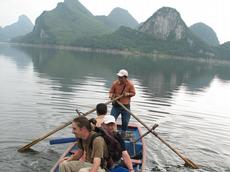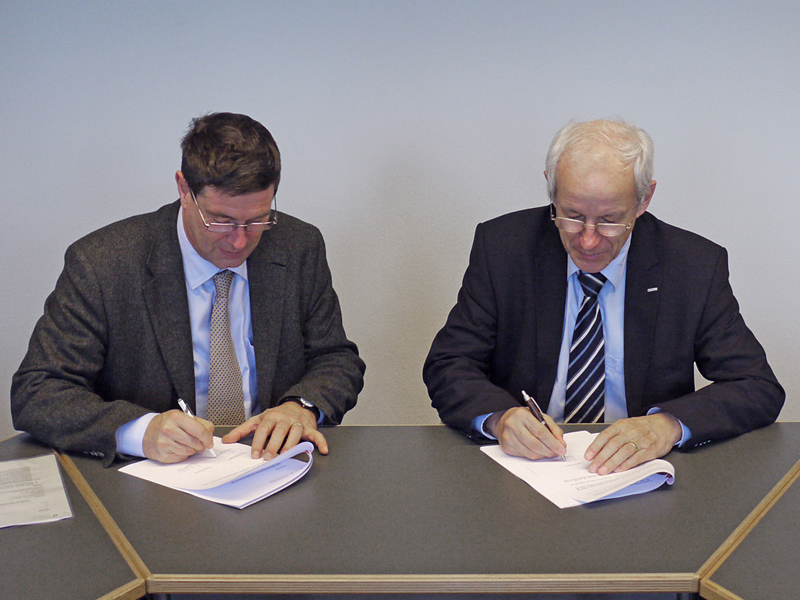Ambassador for science in Asia
ETH Zurich is the Swiss “Leading House” for research collaboration with China, Japan and South Korea. As an ambassador for Switzerland as a location for research and innovation, it will increase its scientific collaboration with these countries over the next few years and extend it to regions in the Asia-Pacific area that were previously less involved.

Since 2008, ETH Zurich has been the “Leading House” for bilateral research collaboration with China, South Korea and Japan – and therefore an important ambassador for Switzerland as a location for science and higher education. As part of Swiss education, research and innovation policy, the Federal Council and Parliament have decided that ETH Zurich should continue to increase the collaboration between these three key countries and Swiss universities over the next four years.
In addition, ETH Zurich aims to discover which of the other regions in the Asia-Pacific area that have been less involved up to now show promising potential for developing research collaboration.
The State Secretary for Education, Research and Innovation, Mauro Dell’Ambrogio, and the President of ETH Zurich, Ralph Eichler, signed the corresponding performance agreement in Berne on 15 February 2013 . “With its international reputation and network, ETH Zurich can establish contacts with Asian research and technology institutions and increase the visibility of Swiss research in Asia’s research and development markets. One notable example of this is the Singapore-ETH Centre for Global Environmental Sustainability (SEC),” says ETH President Ralph Eichler. The SEC is an ETH Zurich research centre which funds research projects on sustainability issues.
Via the “Leading Houses”, the Swiss Federal Government incorporates the expertise and skills of the most internationally active Swiss universities in its foreign scientific policy (see box): “The ‘Leading House model’ has proven particularly useful in international research and innovation policy,” adds State Secretary Mauro Dell’Ambrogio, “It has shown its worth in effectively creating relationships with excellent scientific institutions and firmly establishing partnerships in the Swiss university landscape on a sustainable basis.”
In China and Japan, ETH Zurich is supported by the University of Zurich as an Associated Leading House, while in South Korea it is aided by the University of Geneva.
Identifying new partners for collaboration
The main difference between the performance agreement of 2008 and that of 2012 is the actual bilateral project funding in the form of “Joint Research Projects” with the key countries China, Japan and South Korea. “The core of our assignment is now no longer funding projects, instead it is the strategic further development of collaboration with the key countries,” says ETH Zurich President Ralph Eichler.
The tendering and implementation of research projects will now be completely processed by the Swiss National Science Foundation (SNSF) in the period from 2013 to 2016. The Federal Government recently increased its responsibilities for international research funding in its dispatch on the promotion of education, research and innovation for 2013 to 2016 (ERI dispatch) and in the new Federal Law to Promote Research and Innovation (Forschungs- und Innovationsförderungsgesetz - FIFG).
In addition to China, Japan and South Korea, other countries and regions in the Asia-Pacific area offer promising potential for scientific and technological development. The new performance agreement therefore extends the role of the “Leading House” to these countries and regions too. ETH Zurich is therefore investigating possibilities for further cooperation and identifying key institutions for pilot projects, which could form the basis for research collaboration in the long term.
Starting with swissuniversities
With a view to the upcoming implementation of the
performance agreement for 2013 to 2016, ETH Zurich’s first step was to inform swissuniversities,
the umbrella association of universities, universities of applied sciences and
universities of teacher education in Switzerland that was founded in 2012, about
its new role as a “Leading House”. It invited Swiss universities and
educational institutions to formulate their requirements and wishes for greater
collaboration with institutions and countries in the Asia-Pacific area. It will
use these as a basis for deciding on the necessary measures and preliminary
activities to be carried out over the next few years.
Foreign scientific policy and bilateral research collaboration
Switzerland’s international strategy for education, research
and innovation involves increasing research collaboration with countries that
offer great potential for scientific and technological development. Since 2008,
the relationships relating to scientific policy have focused on Brazil, Russia,
India, China and South Africa (known as the BRICS countries) as key countries, with
the addition of Japan and South Korea. The bilateral research projects
involving these countries aim to facilitate and strengthen scientific
collaboration and exchange between researchers in Switzerland and those of each
partner country on a sustainable basis. On the advice of the Rectors’ Conference of the Swiss Universities
(CRUS), the Federal Council has appointed a “Leading House” for each key
country. In addition to ETH Zurich, the other “Leading Houses” are EPFL (for India and Brazil), the
University of Basel (for South Africa) and the University of Geneva (for Russia).
You can find more information at: ETH Global and the State Secretariat for Education, Research and Innovation.








READER COMMENTS